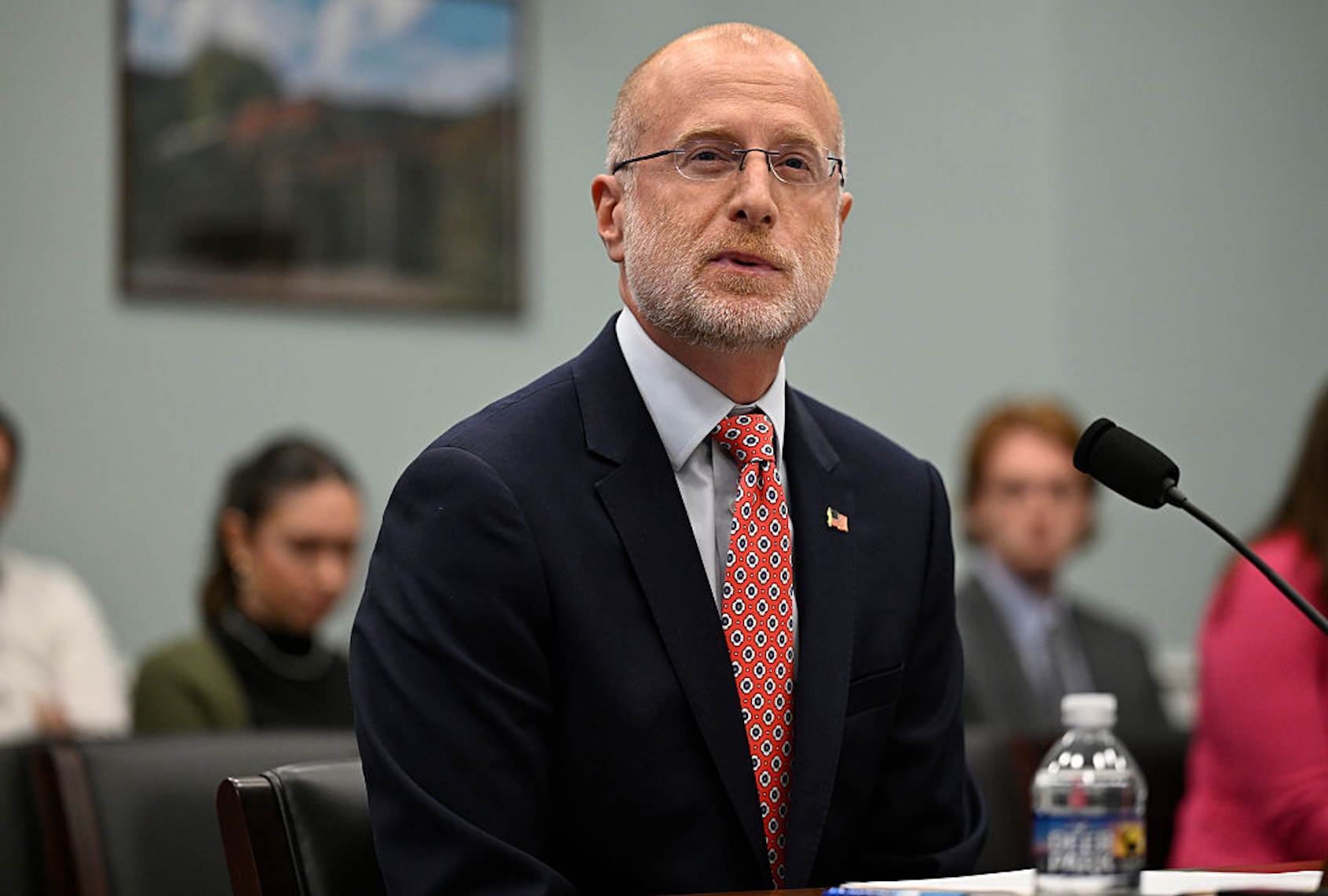World
Brendan Carr’s Threats Spark Free Speech Debate After Kimmel Suspension

The recent suspension of late-night talk show host Jimmy Kimmel has ignited a heated discussion on free speech in the United States. Following Kimmel’s monologue on September 15, 2023, where he criticized political reactions to the assassination of activist Charlie Kirk, the network ABC announced his indefinite suspension. Kimmel’s comments, which included sharp jabs at former President Donald Trump, have drawn both praise and condemnation.
In his monologue, Kimmel remarked on what he perceived as the political exploitation of Kirk’s tragic death, stating, “The MAGA gang is desperately trying to characterize this kid who murdered Charlie Kirk as anything other than one of them.” He further criticized Trump for his response, suggesting that it lacked the maturity expected from an adult. Kimmel’s remarks were provocative and generated a strong backlash, especially from Trump, who took to Truth Social to declare, “Great News for America: The ratings challenged Jimmy Kimmel Show is CANCELLED.”
Trump’s comments highlighted his disdain for Kimmel, asserting that the show has “ZERO talent” and calling for further action against Kimmel and his network. Yet, these remarks were soon overshadowed by the response from Brendan Carr, the Chairman of the Federal Communications Commission (FCC). Carr described Kimmel’s comments as “the sickest conduct possible,” indicating a troubling shift in the government’s stance on free speech.
Government Threats and Free Speech
Carr did not stop at mere criticism. He suggested that the federal government could exert pressure on Disney, ABC’s parent company, if it failed to act against Kimmel. “This is a very, very serious issue right now for Disney,” he stated, adding ominously, “We can do this the easy way or the hard way.” Carr’s comments raised alarms about the implications of government interference in media content.
This situation reflects a broader tension regarding the boundaries of free speech, especially in the context of government authority. In a past ruling, the Supreme Court emphasized that government officials cannot use their position to intimidate or suppress speech simply because it is objectionable. Justice Sonia Sotomayor articulated that while officials can express views and criticize beliefs, they cannot threaten enforcement actions to punish disfavored expressions.
Carr’s earlier stance on free speech appears to have shifted significantly. Previously, he vehemently opposed government overreach into media, stating in 2019 that the FCC should not censor speech it finds disagreeable. His recent threats against Kimmel and ABC contradict his earlier advocacy for protecting free expression.
The Broader Implications for Media
The ramifications of Carr’s comments extend beyond Kimmel’s suspension. They signal a potential chilling effect on media outlets that may fear repercussions for airing controversial opinions. Carr’s remarks about needing to see “some change” from Disney suggest that the FCC is prepared to take action against broadcasters who deviate from the government’s preferred narratives.
This situation raises critical questions about the role of the FCC in regulating speech and whether its actions serve the public interest or act as a means to stifle dissenting voices. The public response to Kimmel’s suspension and Carr’s threats will likely influence future interactions between government entities and media organizations.
In a society that values free expression, it is vital to rally behind those who face repercussions for their speech, regardless of personal opinions about their remarks. The current climate suggests that voices of dissent may be increasingly targeted, making it essential for advocates of free speech to stand together in defense of those under threat.
With the conversation around free speech evolving rapidly, the implications of this incident will reverberate through media and political landscapes for some time. As the nation confronts these challenges, it remains crucial to uphold the principles of free expression that underpin democratic society.
-

 Lifestyle4 months ago
Lifestyle4 months agoLibraries Challenge Rising E-Book Costs Amid Growing Demand
-

 Sports3 months ago
Sports3 months agoTyreek Hill Responds to Tua Tagovailoa’s Comments on Team Dynamics
-

 Sports3 months ago
Sports3 months agoLiverpool Secures Agreement to Sign Young Striker Will Wright
-

 Lifestyle3 months ago
Lifestyle3 months agoSave Your Split Tomatoes: Expert Tips for Gardeners
-

 Lifestyle3 months ago
Lifestyle3 months agoPrincess Beatrice’s Daughter Athena Joins Siblings at London Parade
-

 World3 months ago
World3 months agoWinter Storms Lash New South Wales with Snow, Flood Risks
-

 Science4 months ago
Science4 months agoTrump Administration Moves to Repeal Key Climate Regulation
-

 Science2 months ago
Science2 months agoSan Francisco Hosts Unique Contest to Identify “Performative Males”
-

 Business4 months ago
Business4 months agoSoFi Technologies Shares Slip 2% Following Insider Stock Sale
-

 Science4 months ago
Science4 months agoNew Tool Reveals Link Between Horse Coat Condition and Parasites
-

 Sports3 months ago
Sports3 months agoElon Musk Sculpture Travels From Utah to Yosemite National Park
-

 Science4 months ago
Science4 months agoNew Study Confirms Humans Transported Stonehenge Bluestones









